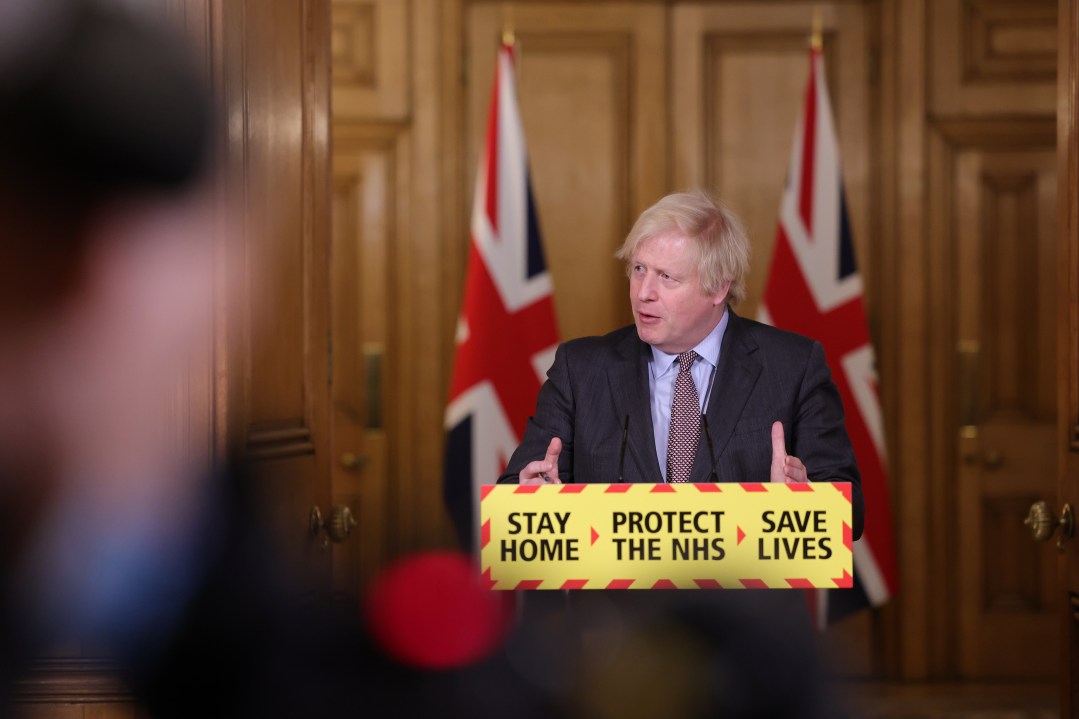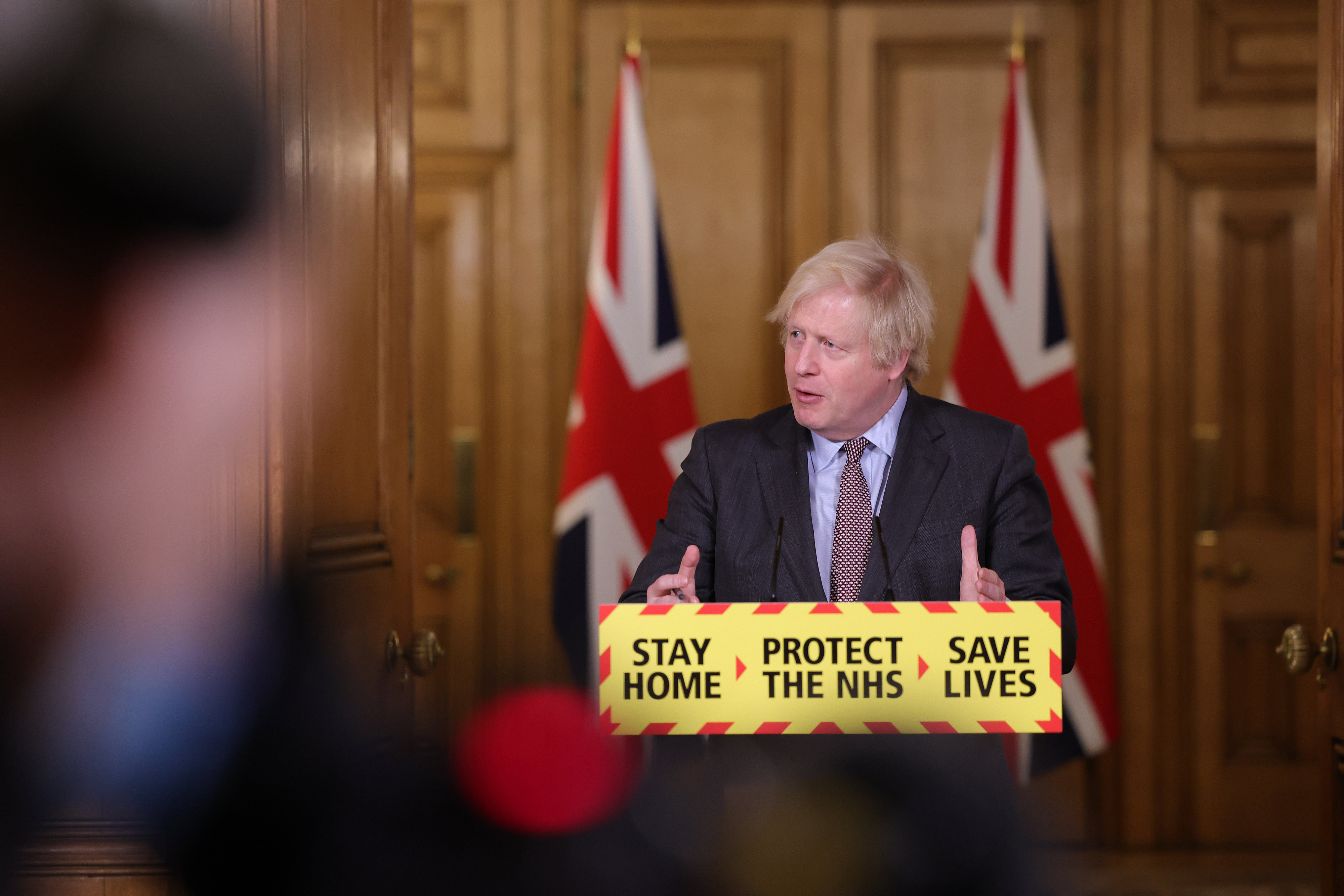Wednesday’s very upbeat Downing Street coronavirus briefing underlined the optimism that Boris Johnson feels about the way the Covid crisis could work out for him. The Prime Minister was celebrating the UK passing the ten million mark for the number of people who have received their first dose of the vaccine, and thanked the NHS for the programme, which he described as ‘the most colossal in the history of our National Health Service’. He also very pointedly thanked the Vaccine Taskforce, which the Prime Minister sees as another vindication of his approach to the pandemic. For Johnson, the first part of the coronavirus crisis was bruising and the government made a series of mistakes which were obvious at the time and even more so with hindsight.
The hope in Downing Street has long been that the end of the pandemic will see the public largely feeling thankful for a successful and impressive vaccination programme — and Johnson getting the credit for that, rather than the blame for the mistakes made earlier on. This isn’t just the belief among the Tories, either. Sir Keir Starmer took care to praise the vaccine programme at Prime Minister’s Questions, and his aides are busy emphasising how much work he is doing to support the programme.
For Johnson, the focus now is on talking about how well the vaccines are going
Even if it is the case that the government escapes the blame politically, ministers do have many lessons which they could already be learning, rather than the focus being on moving on as quickly as possible. It is a shame, for instance, that there are currently no plans to conduct a quick-fire review of what has gone wrong so far so that government departments and health officials can make changes now, rather than wait for the conclusions of a public inquiry in a few years’ time.
Then there was the line from chief medical officer professor Chris Whitty that he and his colleagues think the peak of infections has passed. This means that for Johnson, though, the focus now is on talking about how well the vaccines are going and what the progress of the programme means for life returning to normal. He once again talked about the government’s priority being the reopening schools from 8 March. He is now having to fend off questions from the press about why he doesn’t think they might be able to start opening up earlier, rather than whether they will open at all on that date. Then there’s the ongoing pressure from Conservative MPs to open up more of people’s lives than just schools.
All of this could combine to create yet another dangerously optimistic mood which then ends up being dashed once again. Johnson, though, would not be drawn into this optimism, sticking to the line that he was ‘hopeful’ that schools could start opening up again from 8 March, and explaining that ‘we don’t want to be forced into reverse’ by rushing ahead too quickly. On this, he has clearly already learned at least one lesson about not overpromising.








Comments